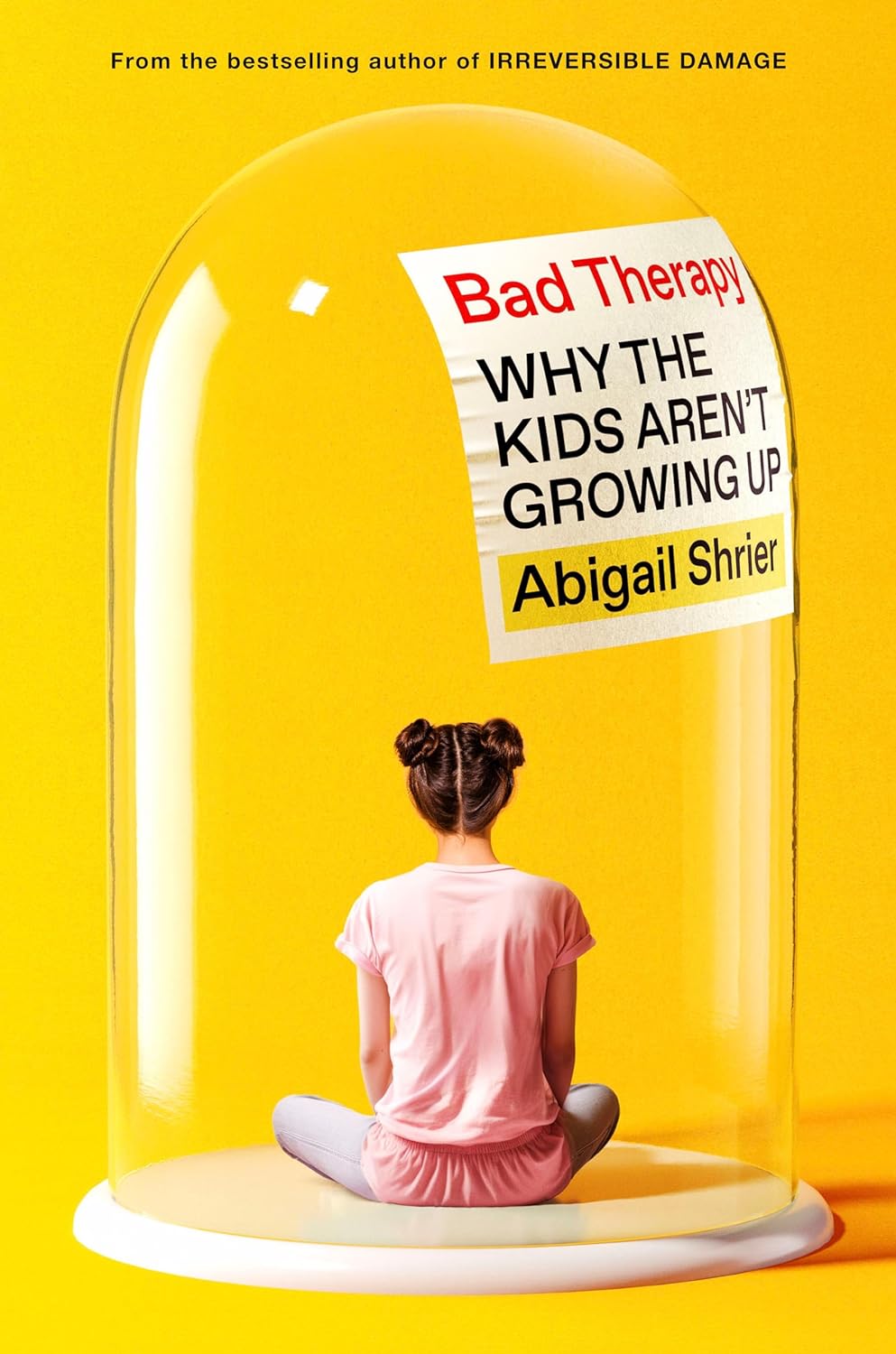A Brief Book Notice from Books At a Glance
by Fred G. Zaspel
In virtually every way that can be measured, Gen Z’s mental health is worse than that of previous generations. Youth suicide rates are climbing, antidepressant prescriptions for children are common, and the proliferation of mental health diagnoses has not helped the staggering number of kids who are lonely, lost, sad, and fearful of growing up. What’s gone wrong with America’s youth?
In Bad Therapy: Why the Kids Aren’t Growing Up, bestselling investigative journalist Abigail Shrier (see our previous feature of her work here) argues that the problem isn’t the kids—it’s the mental health experts. Drawing on hundreds of interviews with child psychologists, parents, teachers, and young people, Shrier explores the ways the mental health industry has transformed the way we teach, treat, discipline, and even talk to our kids. She reveals that most therapeutic approaches have serious side effects and few proven benefits. Among her unsettling findings:
- Talk therapy can induce rumination, trapping children in cycles of anxiety and depression
- Social Emotional Learning handicaps our most vulnerable children, in both public schools and private
- “Gentle parenting” can encourage emotional turbulence – even violence – in children as they lash out, desperate for an adult in charge
Mental health care can be lifesaving when properly applied to children with severe needs, but for the typical child, the cure can be worse than the disease. Bad Therapy is a must-read for anyone questioning why our efforts to bolster America’s kids have backfired—and what it will take for parents to lead a turnaround.
10 Lessons from Bad Therapy
- Therapy can harm. The vast increase in mental health interventions proffered to young people in the last generation has made their mental health worse.
- For most problems, individual therapy does not help young kids. Dampening parental anxiety is a better approach.
- Climate change is not responsible for young people’s despair. But the embrace of ‘Climate Anxiety’ by mental health experts is adding to kids’ worries.
- Don’t make kids’ happiness your goal–or theirs. The generation of parents focused on producing “happy kids” failed. Obsession with happiness (and even “wellness”) is a recipe for dissatisfaction.
- Kids need less supervision, not more. The adults parents hire to track them and the apps they install for this purpose are adding stress to childhood and inhibiting growth.
- Starting a child on psychotropic medication is incomparably different than it is for adults. If you can relieve a kid’s anxiety, depression, or hyperactivity without starting your child on medications, it’s worth turning your life upside down to do so.
- Kids are more likely to accomplish difficult tasks and reap the emotional benefits if they focus on the task ahead instead of focusing on how they feel.
- Schools are a primary source of why this generation isn’t outgrowing teenage angst. By teaching kids to focus on their feelings, validating all negative feelings, and constantly eliciting updates on feelings, they are encouraging rumination, a primary accelerant of depression.
- Trauma gurus have sold the public a lie: that any negative childhood experience produces trauma and that trauma produces mental illness. The opposite is more often true: human beings grow and flourish out of adversity.
- Parents must be authority figures in their own homes. Authoritative parents produce the healthiest, most successful children. Punishment is not cruelty–but abdicating parental authority is.
